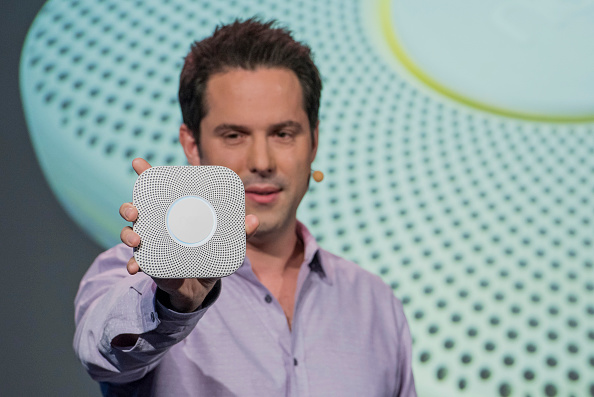
According to experts, Internet of Things (IoT) or the Internet of Everything is the next industrial revolution. It will enable a new category of devices to communicate with each other with little or no human intervention.
IoT was at its peak in 2015 as more connected devices proliferated – sensor-mapped cities and architecture, connected cars and home appliances, fitness wristbands, wearable baby monitors, and many other new offerings. Now that IoT becomes real for more businesses across more areas, 2016 will act as a reality check.
With IoT being in the midst of a boom, the market needs enough talent with the right skills to manage and accomplish projects. In fact, research from Gartner states insufficient staffing and lack of expertise to be the top-quoted hurdle for companies currently looking to execute and gain profit from IoT.
Up work, a global freelancing platform, tracked its extensive data and identified the top 10 skills organizations need to steer a successful IoT strategy. The list has been formulated keeping in mind the annual job posting growth and skills demand from October 2014 to December 2015.
Circuit design
This skill has seen a 231 percent increase in demand in over a year. Connected devices require adjustment and adaptation of chip design and development to resolve new system requirements. Let’s understand this better with an example of applications that depend upon long-life batteries. Such apps may need particular circuit boards to enhance power consumption, or one circuit board with multiple chips and sensors. There’s a strong demand for printed circuit boards (PCB) and 3D designs and hence circuit designers.
Microcontroller programming
This being the second highest in demand skill adds intelligence to the processing tasks of the billions of small, interconnected devices of IoT. Microcontrollers are compact microcomputers that regularize the working of embedded systems in devices, such as motor vehicles, robots, office machines, complex medical devices, mobile radio trans receivers, vending machines, and home appliances. Arduino programming language is particularly in strong demand which is used in building sensor and automation projects.
AutoCAD
AutoCAD lets you design and shape the world around you with the powerful, connected design tools. CAD designers can use their state-of-the-art design technology to define what can be done physically or digitally, delivering what kind of experience, at what speed for smart, connected products. Companies can use freelance talent skilled in AutoCAD to oblige late-stage design changes in product development processes quickly.
Machine Learning
Machine learning algorithms use data sensors and other connected devices to create smarter devices, applications and other products. Expert talent in adaptive algorithms and data analytical capabilities can help organizations in identifying and extracting data patters from these devices and make predictions based on it. Becoming a data scientist can help you secure a lucrative job offer.
Security infrastructure
Like they say, with every good comes a bad – IoT development comes with its impediments such as information security and concerns of increased exposure of data. This poses threats to a user’s digital and physical security. Organizations experienced in cloud security have already been introduced to this; however things get complicated because of the added scale and complexity of IoT connectivity, communications and the endpoints. Within security infrastructure, a strong demand for network security developers and programmers has been observed.
Big data
IoT leaves companies with large amounts of data to be analyzed. They need to collect relevant data for their business while clearing out unwanted data and simultaneously protecting that data. All of this needs highly effective mechanism that incorporates software and protocols. If you are a data scientist or a back-end engineer who can gather, arrange, study and design such heterogeneous sources of data, your future can thrive in this proliferation of big data and IoT. Experience in Hadoop and Apache Spark can be the cherry on the cake.
Electrical engineering
With a whopping 159 percent increase in demand, software and electrical engineering prowess can put you in a strategic position to create the next generation of connected devices. Companies seek electrical engineers to help with embedded device development for mobile apps, and for radio frequency (RF)/analog and microwave engineering for communication systems and GPS on the devices.
Security engineering
We already face trouble keeping our computers, smartphones and tablets updated with the latest version of code. Imagine what a nightmare it could be keeping millions of devices updated and free of security bugs! To alleviate potential risks to high-profile data from being breached, hacked or exposed, companies are investing in professionals with security analysis and vulnerability assessment experience. Their work would be to analyze and discern physical and logical security threats to embed systems such as local controllers/portals and deduce the risk at the device level.
Node.js
For a unified experience between the business systems and the embedded devices, application development needs to keep up and must become more swift, agile and ductile. That’s where Node.js comes in. It’s built on Google’s V8 open source JavaScript engine and is known for its speed, flexibility and effectiveness. This means Node.js can be put to good use in developing data-intensive, real-time applications and is well-suited for the IoT as it relies on such apps. Arduino and Raspberry Pi are some connected devices managed through Node.js and it is rapidly becoming the language and platform of choice for everything from wearables to machine-to-machine (M2M) communications.
GPS development
GPS market is witnessing resurgence through wearables, smart vehicles and logistic companies, all thanks to IoT. In fact, experts are predicting the GPS market to touch upon $3.5billion mark by 2019. As more and more businesses and consumers are embracing location-aware devices, the demand for professionals who can develop GPS-enabled technology is increasing by many folds.
If you are interested in adding these IoT skills to your repertoire, there is no dearth of variety of jobs available for professionals with these skills. Happy job hunting!
This article was originally published on BGR.in.




